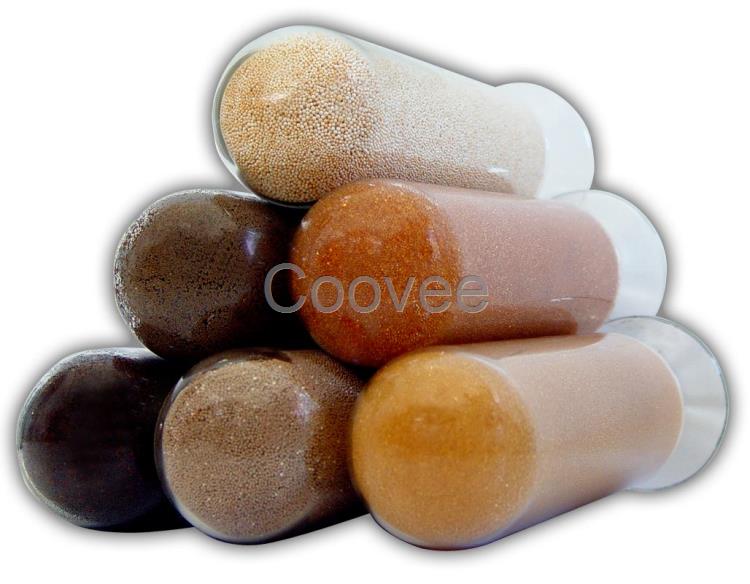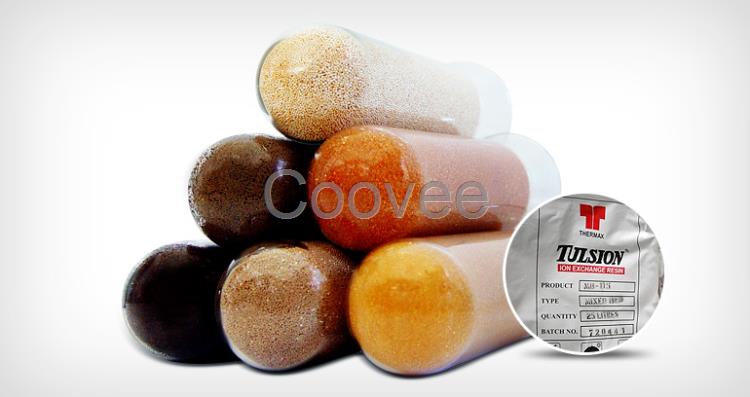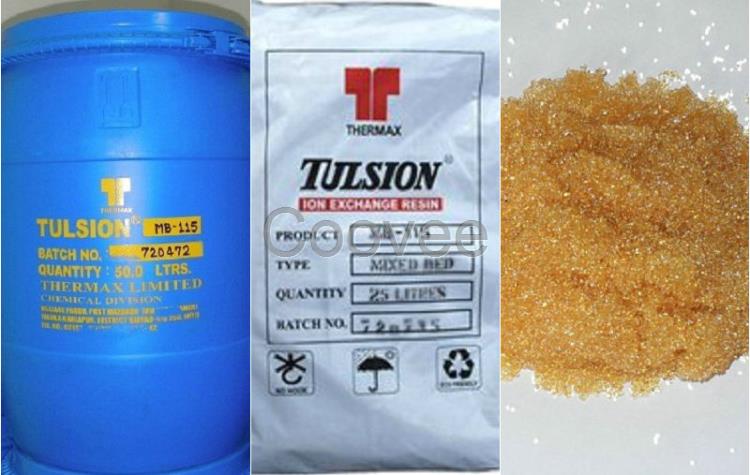用树脂吸附技术净化和收酸--综述
In the metal finishing industries solutions of strong mineral acids ( sulfuric, nitric, hydrochloric) are used to remove surface oxides that impair subsequent manufacturing operations. To a large degree these oxides are dissolved by the acids and as the concentration of dissolved metals increases there is a corresponding decrease in free acid concentrations. Although fresh acid can be added to the solution to make up for this, the
oxide removal ( pickling ) rate generally decreases when the metals concentration increases. The bath must be dumped when the oxide scale is no longer being adequately removed.
在金属精加工行业常用强无机酸(硫酸,硝酸,盐酸)来去除表面的氧化物以减少对后续生产操作的影响。在很大程度上这些氧化物是被酸溶解的,并且随着溶解的金属浓度的增加游离酸的浓度也相应减少。虽然新的酸可被加入到溶液中以弥补这一点,但是当金属浓度增加的时候,氧化物去除率(酸洗)通常会降低。当氧化皮不再被充分去除的时候,这些酸液就必须被倒掉。
This method of operation can cause productivity related problems. Freshly formulated pickling baths containing very low levels of dissolved ironare very aggressive and can cause over pickling. Material of substandard quality can also be produced as the bath approaches the spent condition.Rework may be necessary to prevent problems with subsequent surface treatment processes.
这种操作方法会引起生产率有关的问题。含有溶解的铁含量很低的新配制的酸洗浴是非常强劲的,并可能导致过度酸洗。由于酸洗而接近报废的质量不合格的材料也可能会产生。返工可能是必要的,以防止出现后续的表面处理工艺问题。
In addition, spent pickle liquors can contain large amounts of unused or "free" acid. Free acid in a spent pickle bath represents a loss of valuablechemicals and a waste treatment liability. Continuous purification of pickle liquors can, therefore, offer several benefits to steelmakers:
- uniform product quality with reduced rework
- increased average pickling speed
- reduced chemical consumption
- reduced waste handling requirements
此外,用废了的酸洗液也包含了大量的未使用的或“游离”酸。用废了的酸洗液中的游离酸代表了有价值的化学品和废物处理的责任双方面的的亏损。因此酸洗液的连续纯化可以提供为钢铁生产商带来如下优势:
- 降低返工率,统一产品质量
- 增加平均的酸洗速度
- 减少化学品消耗
- 减少废物处理要求



























